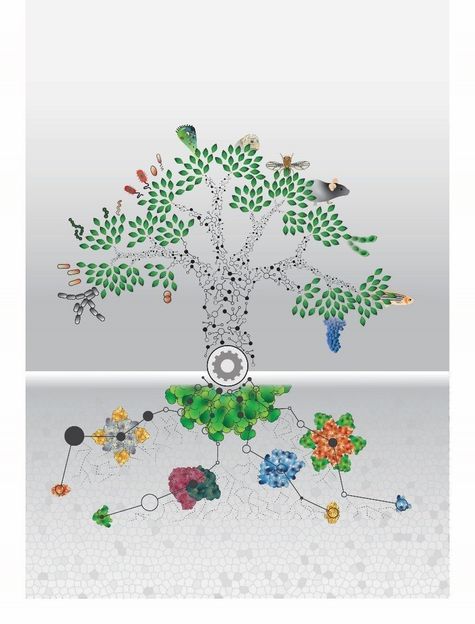Sanofi and Regeneron Launch Major New Immuno-Oncology Collaboration
Companies agree to jointly advance PD-1 and other new immuno-oncology antibodies
Sanofi and Regeneron Pharmaceuticals, Inc. have entered into a new global collaboration to discover, develop and commercialize new antibody cancer treatments in the emerging field of immuno-oncology. As part of the agreement, the two companies will jointly develop a programmed cell death protein 1 (PD-1) inhibitor currently in Phase 1 testing, and plan to initiate clinical trials in 2016 with new therapeutic candidates based on ongoing, innovative preclinical programs.
"The field of immuno-oncology has shown the potential to dramatically improve outcomes for patients with certain types of cancer - however, the field is still in its very early days," said George D. Yancopoulos, MD, PhD, Chief Scientific Officer, Regeneron and President, Regeneron Laboratories. "We believe the approaches most likely to deliver the best results to patients will combine multiple innovative therapies acting on different pathways and targets both in the tumor and the body's immune response - and precisely target these medicines to the right patient. The efficiency and power of our suite of technologies, such as VelocImmune® and VelociGene®, combined with our human genetics capabilities, uniquely positions the Alliance to accelerate the development of potential new immuno-oncology treatment options for cancer patients."
Sanofi will make an upfront payment to Regeneron of $640 million and the companies will invest $1 billion for discovery through proof of concept (POC) development (usually a Phase 2a study) of monotherapy and novel combinations of immuno-oncology antibody candidates to be funded 25 percent by Regeneron ($250 million) and 75 percent by Sanofi ($750 million). The companies have also committed to equally fund an additional $650 million (or $325 million per company) for development of REGN2810, a PD-1 inhibitor. In addition, Sanofi will pay to Regeneron a one-time milestone of $375 million in the event that sales of a PD-1 product and any other collaboration antibody sold for use in combination with a PD-1 product exceed, in the aggregate, $2 billion in any consecutive 12-month period. Finally, the two companies have agreed to re-allocate $75 million (over three years) for immuno-oncology antibodies from Sanofi's $160 million annual contribution to their existing antibody collaboration, which otherwise continues as announced in November 2009. Beyond the committed funding, additional funding will be allocated as programs enter post-POC development.
"The Sanofi-Regeneron Alliance has demonstrated its ability to translate cutting-edge science into groundbreaking medicines for patients with serious needs," said Elias Zerhouni, MD, President, Global R&D, Sanofi. "With more than eight years of successful collaboration between us, I am confident in our ability to advance these novel programs. In addition to PD-1, the collaboration brings together a range of validated, innovative preclinical programs that have unique potential to help patients either as monotherapy or in combination approaches."
The new agreement covers both monoclonal antibodies and new bi-specific antibodies, a variation of standard antibody therapeutics, in which two distinct targets within the body can be bound by the same molecule, usually the cancer cell and an immune cell. Regeneron has developed a novel and flexible manufacturing platform that enables efficient production of bi-specific antibodies that are otherwise similar to natural antibodies. Beyond PD-1, other targets in preclinical development include antibodies to lymphocyte-activation gene 3 (LAG3) and glucocorticoid-induced tumor-necrosis-factor-receptor-related protein (GITR) and a programmed death-ligand 1 (PD-L1) inhibitor. Finally, the collaboration is advancing bi-specific antibodies that target hematologic and solid cancers, either as mono therapies or in combination regimens with other immune modulating treatments.
Other news from the department business & finance
Most read news
More news from our other portals
See the theme worlds for related content
Topic world Antibodies
Antibodies are specialized molecules of our immune system that can specifically recognize and neutralize pathogens or foreign substances. Antibody research in biotech and pharma has recognized this natural defense potential and is working intensively to make it therapeutically useful. From monoclonal antibodies used against cancer or autoimmune diseases to antibody-drug conjugates that specifically transport drugs to disease cells - the possibilities are enormous

Topic world Antibodies
Antibodies are specialized molecules of our immune system that can specifically recognize and neutralize pathogens or foreign substances. Antibody research in biotech and pharma has recognized this natural defense potential and is working intensively to make it therapeutically useful. From monoclonal antibodies used against cancer or autoimmune diseases to antibody-drug conjugates that specifically transport drugs to disease cells - the possibilities are enormous





















































